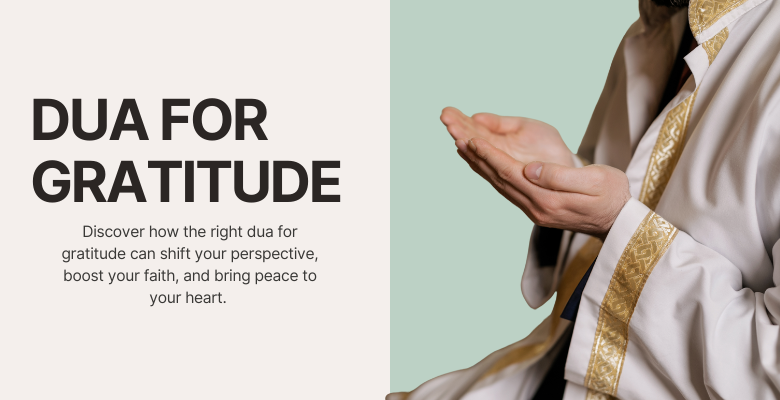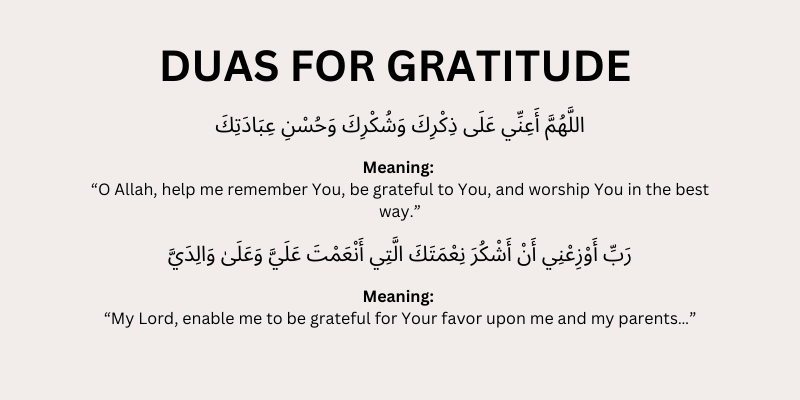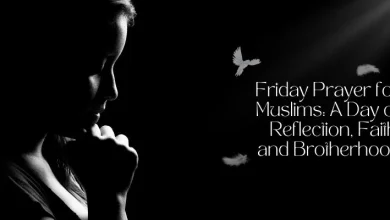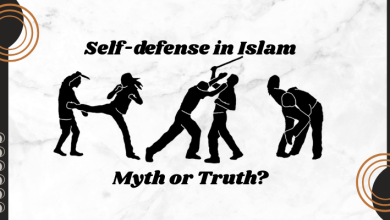Dua for Gratitude: The Ultimate Guide to Inner Peace

Have you ever paused for a moment and truly felt grateful? Life moves so fast that we often forget to appreciate what we have. But did you know that gratitude is one of the most powerful ways to find peace and happiness?
That’s where dua for gratitude comes in. Dua is a personal conversation with Allah, where we ask, thank, and seek guidance. By making dua for gratitude regularly, we can develop a deep sense of contentment and inner peace.
By the end, you’ll have everything you need to strengthen your connection with Allah through gratitude. So, let’s get started!
Understanding Gratitude in Islam
In Islam, gratitude—known as Shukr—isn’t just about saying “thank you.” It’s a way of life. When we express gratitude to Allah, our hearts feel lighter, our worries shrink, and our faith grows stronger. But many people struggle with this. They focus on what’s missing rather than the blessings right in front of them.
Gratitude, or Shukr, means recognizing and appreciating the blessings Allah has given us. It’s more than just saying “thank you.” It’s a way of thinking, feeling, and living. When we’re grateful, we focus on what we have instead of what we don’t. This brings contentment and peace. And one of the best ways to cultivate gratitude is through dua for gratitude.
What Does the Quran Say About Gratitude?
The Quran teaches us that gratitude leads to more goodness. One of the most powerful verses about this is:
“If you are grateful, I will surely increase your blessings. But if you are ungrateful, My punishment is severe.” (Surah Ibrahim 14:7)
This verse shows that gratitude isn’t just good manners—it’s the key to a better life. When we appreciate what we have, Allah gives us even more. But when we take things for granted, we block our own blessings. Reciting a dua for gratitude after reflecting on this verse can deepen our sense of thankfulness.
Hadiths on the Importance of Thankfulness
The Prophet Muhammad (ﷺ) taught that gratitude is a sign of true faith. He said:
“The one who does not thank people has not thanked Allah.” (Tirmidhi)
This means that being grateful to others is part of being grateful to Allah. When someone helps us, we should acknowledge their kindness. Saying “thank you” is a simple but powerful way to show gratitude. Reciting dua for gratitude not only strengthens our faith but also reminds us to appreciate the people in our lives.
Powerful Duas for Gratitude

The Best Dua for Gratitude
One of the most powerful duas for gratitude is:
اللَّهُمَّ أَعِنِّي عَلَى ذِكْرِكَ وَشُكْرِكَ وَحُسْنِ عِبَادَتِكَ
Transliteration: Allahumma a’inni ala dhikrika wa shukrika wa husni ibadatika.
Meaning: “O Allah, help me remember You, be grateful to You, and worship You in the best way.” (Abu Dawood)
This dua for gratitude is simple but powerful. It asks Allah for help in three things: remembering Him, being grateful, and worshipping Him properly. When we make this dua for gratitude, we acknowledge that we can’t be truly grateful without Allah’s guidance.
When and How to Recite This Dua
- Say it after every prayer (as advised by Prophet Muhammad ﷺ).
- Recite it in the morning and evening for daily gratitude.
- Say it whenever you feel ungrateful to reset your mindset.
Additional Dua for Gratitude and Inner Peace
The Quran and Hadith contain many other duas for gratitude. Here are a few:
Surah Al-Naml 27:19 رَبِّ أَوْزِعْنِي أَنْ أَشْكُرَ نِعْمَتَكَ الَّتِي أَنْعَمْتَ عَلَيَّ وَعَلَىٰ وَالِدَيَّ
Transliteration: Rabbi awzi’ni an ashkura ni’mataka allati an’amta ‘alayya wa ‘ala walidayya…
Meaning: “My Lord, enable me to be grateful for Your favor upon me and my parents…”
This was the dua for gratitude of Prophet Sulaiman (AS), asking Allah to help him stay grateful. It reminds us that gratitude is a gift from Allah.
How Gratitude Brings Inner Peace
Gratitude isn’t just about saying Alhamdulillah (all praise be to Allah). It’s a mindset that changes how we see life. When we focus on what we have instead of what we lack, our hearts feel lighter, and our minds feel calmer. But how exactly does dua for gratitude bring inner peace? Let’s break it down.
Psychological Benefits of Gratitude in Islam
Gratitude has a direct impact on our mental and emotional well-being. When we thank Allah for our blessings, we shift our focus from negativity to positivity. This helps:
- Reduce stress and anxiety – Instead of worrying about what’s missing, we feel content with what we have.
- Improve relationships – When we appreciate others, our connections become stronger.
- Increase happiness – Thankful people feel more satisfied and at peace.
This means that when we appreciate even the little things in life, we naturally become happier and more at peace.
Scientific Perspective: How Gratitude Affects the Brain
Science confirms what Islam teaches about gratitude. Studies show that being grateful:
- Releases dopamine and serotonin – These are “feel-good” chemicals in the brain that boost happiness.
- Lowers stress hormones – Gratitude reduces cortisol, which is linked to anxiety and depression.
- Rewires the brain for positivity – The more we practice gratitude, the more our brain focuses on good things.
In short, gratitude isn’t just good for the soul—it’s good for the brain too! Reciting dua for gratitude consistently can train our minds to focus on positivity.
Practical Ways to Develop a Habit of Gratitude
Gratitude isn’t just a feeling—it’s a habit. The more we practice it, the stronger it becomes. But how do we make gratitude a part of our daily lives? Here are three simple ways.
1. Start and End Your Day with a Gratitude Dua
The Prophet Muhammad ﷺ taught us to say:
“All praise is for Allah who gave us life after causing us to die, and to Him is the return.” (Bukhari)
This is a perfect dua for gratitude to start the day. Similarly, at night, we should reflect on our blessings and thank Allah for everything.
2. Keep a Gratitude Journal in an Islamic Way
Writing down our blessings helps us focus on the good in our lives. A gratitude journal is a simple way to do this.
Here’s how to start:
- Every night, write three things you’re grateful for.
- They can be big (like good health) or small (like a kind word from a friend).
- Reflect on how Allah has blessed you, even in tough times.
Allah reminds us in the Quran:
“And if you count the blessings of Allah, you will never be able to number them.” (Surah Ibrahim 14:34)
This shows that we will always have countless reasons to make dua for gratitude.
Start Your Gratitude Journey Today
Gratitude is more than just saying Alhamdulillah—it’s a way of seeing life. When we focus on our blessings, we feel happier, calmer, and closer to Allah. The Prophet Muhammad ﷺ taught us that thanking Allah brings more good into our lives.
So, why not start today? Begin your day with a simple dua for gratitude, say Alhamdulillah often, and take a moment to reflect on your blessings. Small steps can make a big difference.
Now, we’d love to hear from you! What’s one thing you’re grateful for today? Share in the comments and inspire others on this journey. Must follow Jannah Journeys for more such articles.
FAQs About Dua for Gratitude and Inner Peace
Q. Can I make my own dua for gratitude, or do I have to use specific ones?
Yes, you can make your own dua! Allah loves when we speak to Him from the heart. While there are many beautiful duas from the Quran and Hadith, you can also simply say, “O Allah, I am grateful for everything You’ve given me. Help me always be thankful.”
Q. How often should I make dua for gratitude?
There’s no limit! You can make dua anytime, anywhere. However, some of the best times include after prayer, in sujood (prostration), during Tahajjud (late-night prayer), and in the morning and evening.
Q. What if I don’t feel grateful?
That’s normal. Sometimes, life feels overwhelming. Start by making small duas, like “O Allah, help me see the blessings around me.” Also, writing down three things you’re grateful for each day can help train your mind to focus on the good.
Q. How can I teach my kids to be grateful?
Make it fun! Encourage them to say Alhamdulillah for small things, ask them what they’re thankful for at bedtime, and lead by example. You can also read them stories of the prophets to show how they practiced gratitude.
Q. What’s the difference between Shukr (gratitude) and Sabr (patience)?
Shukr is thanking Allah for His blessings, while Sabr is staying patient during hardships. They go hand in hand—when we’re grateful, we develop patience, and when we’re patient, we learn to appreciate even the small blessings.
Q. What should I do if I keep forgetting to be grateful?
Create small habits! Say Alhamdulillah after meals, make a gratitude list daily, or set a reminder on your phone. Surround yourself with people who remind you to be thankful.




